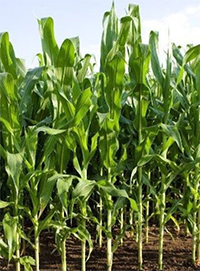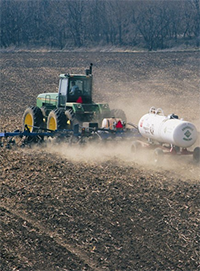Better for the Environment and Your Bottom Line
By keeping nitrogen in the soil, we kept 664,000 metric tons of carbon dioxide out of the air.
Country Selector
Please enter a valid location
Supporting the Original Environmentalists
At Corteva Agriscience, we believe farmers are the original environmentalists. Farmers are dedicated to feeding our growing populations while stewarding the land — day in and day out. That’s why we work to bring farmers the latest innovations that are backed by best management practices and stewardship policies.
At Corteva Agriscience, we believe farmers are the original environmentalists. Farmers are dedicated to feeding our growing populations while stewarding the land — day in and day out. That’s why we work to bring farmers the latest innovations that are backed by best management practices and stewardship policies.
- Nutrient Management
- Consequences
- Solutions
- Environmental Impact
- Biologicals
- Pollinators
- Additional Resources
Taking Care of our Natural Resources
As the first stewards of the land, farmers have taken on the responsibility of adjusting their nutrient management programs to better protect their neighbors and our natural resources.
In the 1970s and 1980s, farmers began adopting nitrogen loss prevention practices — and several Midwestern states formed task forces to provide agricultural recommendations for improving water quality. One of those practices was the use of a nitrogen stabilizer.

Nitrogen is one of the most important nutrients in growing high-yielding corn. Unfortunately, nitrogen can be easily lost into the air and waterways, resulting in negative impacts to the environment and human health. As the first stewards, farmers started adopting different fertilizer types, UAN and urea.

Today, many farmers follow the 4R Nutrient Stewardship program.
- Right source
- Right time
- Right rate
- Right place

Consequences
Hypoxia issue (hypoxic/dead zone in the Gulf of Mexico)
Human health impacts
Greenhouse gas emissions numbers
Drinking water quality
Solutions to Enhance Nitrogen Use
Nitrogen is easily lost through leaching, denitrification and volatilization.
- Leaching occurs when rain washes nitrate nitrogen out of the soil and into the waterways.
- With denitrification, bacteria below ground convert stable ammonium nitrogen into unstable nitrate, which can be converted to nitrous oxide gas that can escape into the air.
- Volatilization is an above ground process that converts usable ammonium nitrogen into ammonia gas, which escapes into the environment instead of getting into the root zone.
Up to 70% of nitrogen loss occurs below ground due to leaching and denitrification. About 30% of nitrogen loss happens above ground from volatilization. On average, 25% of all nitrogen a farmer applies will be lost.
To help farmers enhance their nitrogen use and lower greenhouse gases, Corteva developed solutions that are better for the environment.
Recognizing Environmental Impact
Protecting Pollinators
Pollinators — including bees, birds, bats, butterflies, ants and other insects and vertebrates — play a key role in the health of our food systems and environment. Nearly 75% of food crops worldwide — as well as 90% of wild plant species — rely on pollinators. These crops represent between $325 billion and $577 billion worth of food production each year.
Corteva Agriscience actively works to protect the health of both pollinators and the ecosystems they inhabit through a variety of initiatives.
Additional Resources
Having access to innovative, sustainable products is a top priority for Corteva Agriscience — but it’s not the only priority. We know we also need to provide educational resources to both farmers and agricultural retailers to help them be the best environmental stewards they can be.







